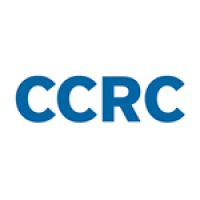By Hoori Kalamkarian and Melissa Herman
In 2017, the Center for First-Generation Student Success and the Council for Opportunity in Education initiated the annual First-Generation College Celebration. Since then, on and around November 8, a growing number of higher education institutions, nonprofit organizations, and other entities have hosted events celebrating the strengths and achievements of first-generation college students. One objective of this day of celebration is to highlight the skills and assets first-generation students bring to college.
We’re joining in the celebration today by sharing preliminary findings from a CCRC-led study on first-generation college students’ support networks and how those relationships shape their college journeys. In this study, conducted in partnership with Michigan State University and with support from the Institute of Education Sciences, we use an asset-oriented lens to explore how students’ familial and other personal relationships help them get into and through college. Spotlighting the assets of first-generation students flips the script on decades of scholarship on potential gaps in knowledge of college processes and procedures that first-generation students may have because their parents did not complete a college degree.
In spring 2022 and spring 2023, we surveyed and interviewed first-generation college students in their first year at two California community colleges and two universities in the California State system, asking respondents to report whom they turned to for academic and other types of support. We also interviewed a subset of respondents to dig deeper into the relationships that they identified on the surveys. We found that while the parents of first-generation college students may not have extensive college experience, many first-generation students do have networks rich in knowledge and connections that can be helpful to them while in college. Below are some of the emerging findings from our study:
- Parents are an important source of encouragement and emotional support. For a substantial portion of the first-generation college students surveyed for this study, parents, despite not having completed a college degree, were instrumental to their college journey. Over half of the more than 2,000 students who responded to the first wave of the survey named at least one parent as someone they turn to for help to get through college. For these students, parents were especially helpful by encouraging them and providing emotional support.
- First-generation college students often have family members who have attended higher education institutions. While their parents have not completed a college degree, 70% of survey respondents indicated that they have other family members who attended or are attending college. The proportion reporting an extended family connection with college experience was higher among students in our sample attending four-year institutions than among those attending two-year colleges.
- Siblings and extended family members with college experience are key resources for first-generation college students. Of the 1,459 students with at least one family member who currently attends or previously attended college, 60% said they had asked their family for help on college-related issues. In particular, one third of students said siblings helped them navigate college. A significant number of students also listed a cousin as a person in their network who supported them in their college journey.
- Siblings brokered relationships with college services. Interviews with students about their personal networks reinforced the importance of siblings, cousins, and other extended family members who had interacted with the higher education system. Specifically, students credited these family members with connecting them to college services, including financial assistance and academic advising, as well as with providing advice on classes and managing college paperwork.
- Childhood and high school friends also connected students to college services. First-generation college students leveraged pre-collegiate peer relationships to enroll in and get through the first year of college. Over half of the students who responded to the survey identified at least one childhood or high school friend as a source of support. Students described how these peers helped them connect with advising, financial services, and other college-based resources.
- Beyond family and friends, students relied on coworkers for support. Some students mentioned coworkers as a source of ongoing advice and encouragement. Coworkers offered answers to questions about college and career direction and provided encouragement to keep going when college was challenging.
- Students expressed pride in their first-generation identity. Many students highlighted the persistence and resilience that they saw in themselves and other first-generation students. They felt proud of what they had accomplished so far and excited to graduate college when their parents had not had that opportunity.
Being among the first in your family to complete a college degree means figuring out how to get through a system that can feel mysterious and daunting. Despite that, our study indicates that many first-generation college students are connected to resources ready to help them succeed. To better serve these students, colleges may need to adjust their outreach and support strategies to help students better leverage these sources of support. For example, colleges can consider expanding family programming and encouraging students to bring older siblings and other relatives to campus events in order to strengthen these relationships and create additional information-sharing channels. Being more inclusive of families would also make support services more culturally responsive to diverse student communities who expect their families to be involved in their college journey. In addition, the fact that students are finding support and information from coworkers in the community suggests that stronger relationships between campuses and community businesses may also widen and strengthen the web of support for students.
The first step for colleges seeking to improve support for first-generation students may be enhancing intake processes to collect more granular information about first-generation students’ personal networks. That way colleges can differentiate among first-generation students and tailor services based on the resources first-generation students bring with them when enrolling. Redesigning services and processes in these ways can mean that students’ strengths and contributions are seen, which can go a long way in helping students persist.






